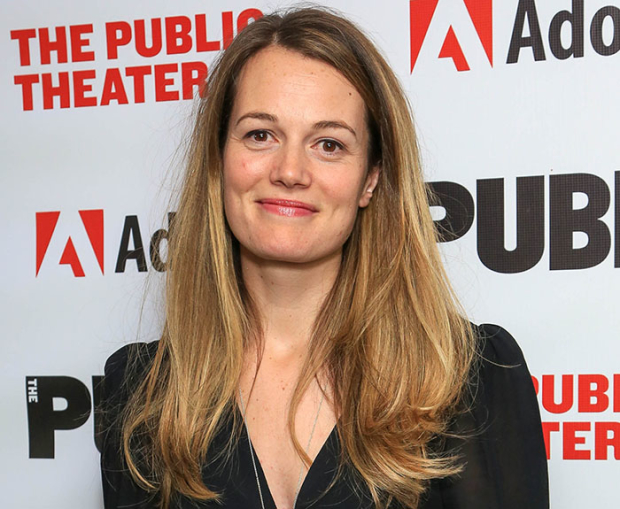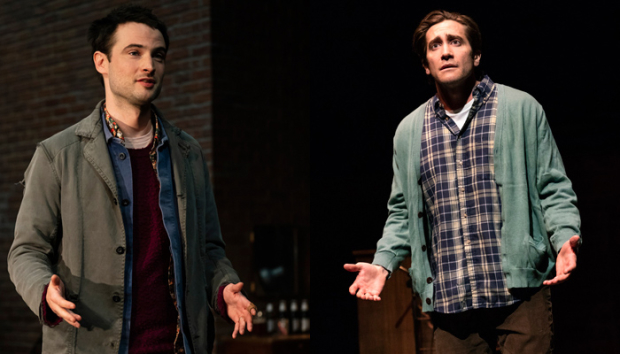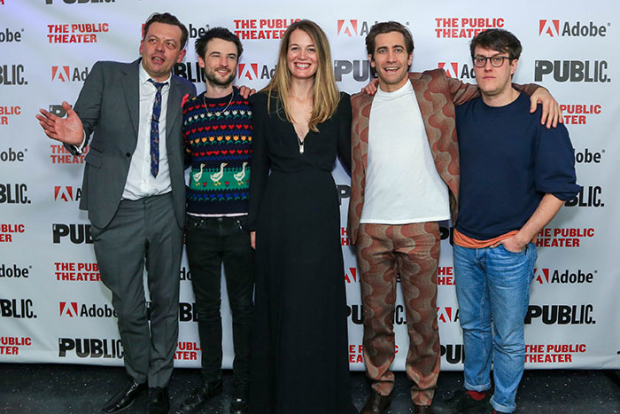Sea Wall / A Life Director Carrie Cracknell Would Rather You Forget She Was Ever There
If Tom Sturridge and Jake Gyllenhaal don’t sound like actors, Cracknell has done her job.
Highlights from director Carrie Cracknell's theatrical résumé include productions of Medea, Elektra, Hedda Gabler (a modern adaptation by Lucy Kirkwood), and A Doll's House — a production that introduced New Yorkers to her work when she brought it from London's Young Vic to BAM in 2014. Bold classics, often featuring powerful female leads, have been Cracknell's specialty. And yet, the London-based artist is making her Broadway debut with an evening of two monologues: Simon Stephens's Sea Wall, performed by Tom Sturridge, and Nick Payne's A Life, performed by Jake Gyllenhaal.
The two pieces, which Sturridge and Gyllenhaal first performed this past February at the Public Theater, take on three sprawling topics: life, death, and parenthood. Shifting away from her usual dramatic flare, Cracknell's objective has been to turn those big ideas into humble conversations with an audience. "There is a sense with both pieces that you could be sitting next to them in a restaurant or on a train," she says, "and have no sense of what they're experiencing." Of course by the time you leave, all of that will have changed.

(© Tricia Baron)
How did these two pieces find their way to you and then to each other?
I began this conversation with Jake after he'd seen a show of mine at the National. He had had a long-standing interest in what was then called The Art of Dying and has become A Life. I had seen The Art of Dying — the original work that Nick [Payne] made — when he performed it at the Royal Court, and it was such a sensitive and honest piece by Nick that at first I think Nick didn't feel that he wanted to revisit it. He couldn't even really imagine anyone else performing it because he had written it for himself to perform. And then Jake and I started collaborating with Nick, and we had this idea for him to start thinking about how it had felt for him to become a father, as well as talking about the loss of his own father. So he then went on an extraordinary journey to rewrite the piece and to try and find a new angle on it so it could fit Jake's voice. It has become a piece that's written from a totally different direction with the context of loss inside it. In a way it's about becoming a man — the transition from being a child to the acceptance of the responsibility of parenthood.
Simon's Sea Wall had a long performance history here in the UK, and the two pieces felt like a really interesting partnership because they both explore quite similar themes but from slightly different directions. They're almost like the emotional inversion of each other — they sort of click together in this really satisfying way.
What would you say are the qualities that make Nick Payne's and Simon Stephens's writing distinct — both in general and from one another?
Nick's writing has always been defined by a really interesting combination of deep humanity and a very playful interest in form and structure — and in a way that's often really revealing of its subject matter. Simon's writing is so expansive and has such range. He's probably the most performed living playwright in the world. Simon's writing has a vivid theatrical imagination and sharpness to it, and it's often really surprising internally. What I love about both of these pieces is they feel very autobiographical. There's something really compelling about seeing these two writers, who are masters of the form, revealing something of themselves.

(© Joan Marcus)
As someone who directs a lot of big, classic plays, what were the challenges in directing something as small and intimate as Sea Wall / A Life?
There was a need for humility in the direction, which I really enjoyed. I think the really beautiful thing about it was learning to have confidence and faith in the writing and the acting. It was a very different way of making, and it felt quite pure and meditative in a way. Everything became about the detail. It was really important to me that we explore this organic connection between the actors and the audience, so that it would feel at times quite unperformed. I love stage pictures and light and sound and all of the tools in the kit but sometimes they can push an audience away. So we really purposefully shied away from trying to do complex stagecraft.
Are you in completely new territory with this production, or is there a link between Sea Wall / A Life and your other work?
I've always been interested in trying to slightly subvert the way that we frame stories and the way that we understand men and women and the way that we understand gender roles. Typically that's led me toward big complicated female protagonists, but actually there's something really striking about this, because it allows a male perspective on vulnerability and fragility and the profound change that can happen when you become a parent. Once you become a parent, you're never truly safe again, and I think that's as true for men as it is for women. We live in a culture where we still tend to tell stories about difficult, diffident, dangerous male protagonists and the women in their lives. I think if we want the world to become more equal and more progressive then we have to focus as much on releasing men from traditional binding roles as we do for women.

(© Tricia Baron)







